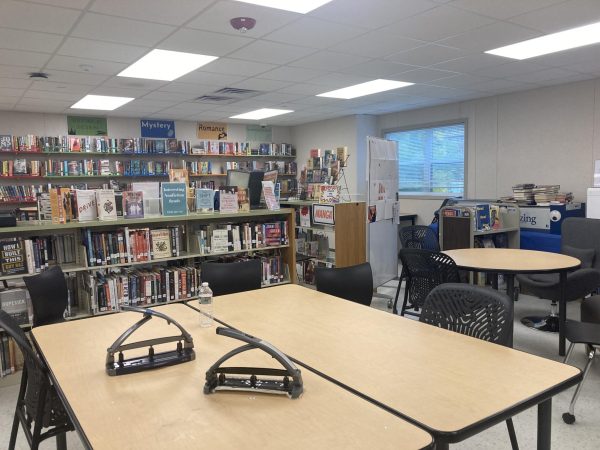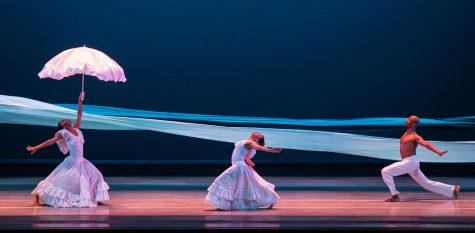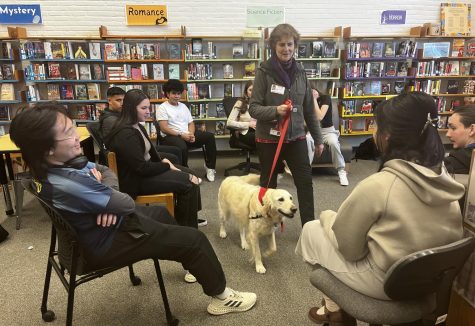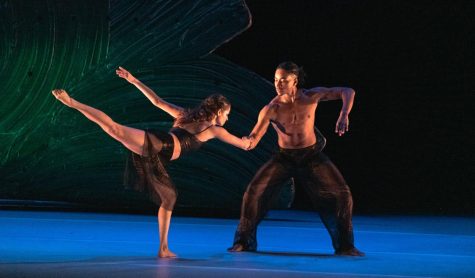A day of poetry speaks to deeper meaning
Friday, March 21, a handful of Watertown High School students traveled to UMass-Boston for the Student Day of Poetry. Busloads of students from around the state filled the entirety of the UMass-Boston bleachers.
It was an easy-going Friday, with a short bus ride into the city and a relaxing day of writing and listening to poetry. The students were greeted by a UMass-Boston representative, and then chose one of 33 poetry workshops to attend. These workshops ranged from instruction on how to write poems about food to how to integrate cultural references into one’s poem to how to write poetry from personal experience. Within the workshops, students interacted with kids from other parts of the state while learning about a specific facet of poetry and even writing poems of their own.
After lunch, the entirety of the student body was treated to readings from professional poets. Shortly after, these poets turned the microphone over to students, who read the poems they had written earlier that day.
The day was fun and interesting, but most of all it was meaningful.
Almost 1,000 Massachusetts high school students had a strictly educational day in which they – at least to some degree – cared about what they listened to. All of the workshops were designed for people not already involved in the world of poetry. Simply by allowing the students to choose what information they would receive based on their interests, and by giving them options that related to the life of a young adult, the great majority of individuals were engaged in the poetry they were creating and learning about.
The professional poets read poems with meaning that directly related to young adults with such passion that students who would normally have their heads down by 1:30 p.m. on a Friday were clapping for an adult that just read them a poem.
The student poems engaged the room even further, as one’s own peers read jaw-dropping, gut-wrenching, tear-jerking, and often hilarious poems; many of which received standing ovations, from high schoolers.
After a student read one of the more emotional poems of the afternoon, I looked around the gymnasium. About 1,000 people between the ages of 15 and 19, all focused entirely on a girl who just read poetry, were engaged in their learning. These people enjoyed what they had been taught earlier that morning and were stunned into focus from the stories they heard that afternoon.
After the day of poetry was over, the students from Watertown High returned to school and their homes, and, following the weekend, arrived at WHS on Monday morning. And yes, they learned about the advanced network of cellular processes, the history of 18th-century China, and mechanical physics. There is no doubt these things are important. Yet it is equally important to experience the emotions of those around you, to make connections through words, and learn how to express your feelings and beliefs to other individuals with confidence and conviction.
But more than any of those things, it is important to know what it feels like to truly care about your education. To care about what you are being taught and what you are being told. The great majority of the students in that gym cared about that day’s education, they cared about the experiences they were participating, they cared about their peer reading a poem about the struggles of her family, they cared about the fact that they were being taught the interesting, real-world skills of connection with and empathy toward another person.
Today’s young adults need these skills, and although today’s world requires people who know the ins and outs of calculus-based physics, people who know the ins and outs of caring about oneself – but more importantly caring about others – are in far greater demand.
It’s time to recognize that education isn’t all about pure information, and that learning to care about the people and problems of the world is a skill that is absolutely necessary, yet nearly nonexistent in today’s high schools.
–April 6, 2014–
Your donation will support the student journalists of Watertown High School. Your contribution will allow us to purchase equipment and cover our annual website hosting costs.








